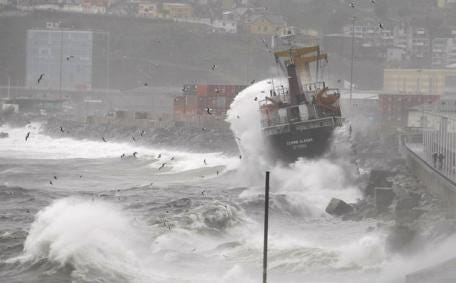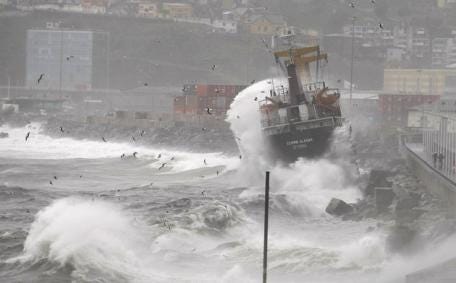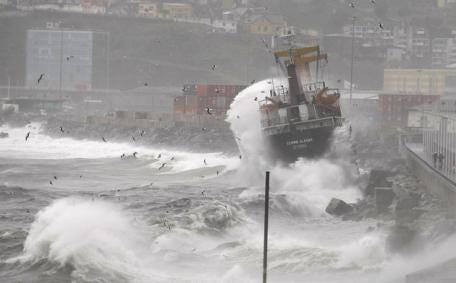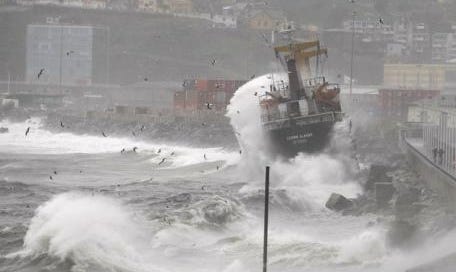*

Dreaded, embraced, daring to be happy, banned programs, tight government control, the sad wrecks dancing around the poles, the cheeky girls from Isaan beaming at him with the shortest look through the open doors of a go go bar, because there were almost no tourists about and the girls were desperate, and everything went swaying everywhere, all for nothing, all for everything, all for short time or long time or any time you liked, treat them well pay them well she is happy you are happy goes the motto and equally the inverse, treat 'em mean, keep 'em keen, doesn't work here, perhaps doesn't work this century. At least not in the professional classes in the centre of the city, where he was a firmly established fully happy resident. Time out of mind, oh sure, one cigarette in 18 days and yet he still woke up some mornings with bags under his eyes, as if his body was going through another layer of detox, as if all those triumphant, chemical scarred days were reliving themselves in his dreams and torturing his ageing body yet again. And yet, as he did his laps in the pool on the roof, surrounded by Bangkok skyscrapers and aching hearts, blissful dreams, torn apart and put together and nuzzling into the kindest flesh, their breath iridescent against each other in those early hours; everything, that was all he could think, everything, I never want to leave here.
It was the same expression the boy used when he surveyed their brand new never before lived in apartment: everything. The sound system. The internet. The microwave. As Celine Dion and other high camp music fused through the sound system, musical taste no doubt acquired in gay bars or in poverty stricken rooms where they camped around being fabulous; hey, who was to argue, she was sweet, everything was fine, Pete, straight Pete staying for a few days, the young artist from Erskineville six foot something tall and impossible to dismiss, handsome, has it all, was going to address the gay AA meeting in Bangkok this evening, after Alex invited him when we were together at Saint Louise hospital, and here was another hysterical confluence of characters and circumstance, written between the lines, progressing up through multiple waves of innuendo and character development, while the birds coo cooed in the park and flew secretly from one branch top to another, and he could never truly tell what had really happened, "pitiless demoralisation", the best of times the worst of times, but then, working out fantasies which had lain dormant for decades, the ultimate fulfilment, the ultimate rounding of corners and completions of life cycles, from early obsessions to late blooming fulfilment, from an inner heart to an outer craziness: you are obviously a very funny man, I just want to talk to you, the Dutch man said, feeding him yabba in the toilets.
Pitiless and incomprehensible demoralisation, it was a phrase that always made them laugh because it seemed to sum up so perfectly what they had lived through; and what Pete had already seen him live through, there in those rooms on Koh Chang when it was all about lost time and clear insanities and desperate days, shattered, no longer able to keep up, what was meant to be a honeymoon turning into an insane fit of jealousy; and suddenly Baw was drinking two or three bottles of Jack Daniels every day and every morning his bed was full of sleeping Thais and unable to sleep, he walked up and down the toxic beach and the poisonous damp, hot air clamping down on sick skin, and he knew there was no way out of this; and yet it was his money that kept disappearing and the incomprehensible demoralisation led to the most intense conversations; there in the sandy sweeps and early morning bars and tearful reunions; there was only ever one solution; time cures all, move on, change personnel, change places, change dreams and dramas and move on; change countries even. Time cures all and he knew that; even backtracking across multiple trails in Sydney, when they would shoot up in cars and he would keep his dying friend company; there outside the dealer's house, there in those incomprehensible streets; back at the house, everything too close for comfort and yet time and destiny and poverty were all taking them along the path; pushing them towards the end.
Where did all the money go? Colin's bewildered relatives asked at the funeral; and at the wake afterwards he said: I know exactly where it went. Not much more needed to be said. Colin double crossed everybody and yet they all loved him. He waited for his sister to return before dying; and yet she had left for her own preservation. It was too difficult to watch. And these days: he had survived. And Colin would have loved it, if only he had survived to be told the tale, or participate in the tale, fabulous darling. He told the story at the funeral. There they were; that little gang of street boys with one operating rule: never ever do anything with the c...ts unless they pay you. And here was this boy down the road giving it away for free and apparently enjoying it. They had never seen anything like it. A gay boy. Like, a genuinely gay boy who was doing it for fun, because he liked it. How was that possible? How did that make sense? Now, in a swishy apartment with swishy music playing and the swishy boys at the local cafe serving him coffee every morning, "I've got all my life to live, say you love me," he couldn't have been happier. Perhaps it was just something called acceptance. Perhaps it was just easier to be this way. Pitiless and incomprehensible demoralisation. Enough already. Time to be happy. Sing a song, nothing, just sing a song. Happy. Happy. Dee jai, dee jai. Sing a song.

THE BIGGER STORY:
http://www.independent.co.uk/news/uk/home-news/afghanistan-now-its-americas-war-2021218.html
These are hard and painful times for British forces in the relentless conflict in Afghanistan. The death toll now stands at 312, with the former head of the Army, General Sir Richard Dannatt, saying it is likely to go beyond 400 before it is over. Both sides are anticipating a summer of ferocious fighting as the endgame approaches.
Against this background the withdrawal from Sangin – where 99 British soldiers were killed, almost a third of the total – has particular resonance as US forces take over. To a greater extent than ever before, this is America's war. There is little doubt that the new British Government would like to bring the troops back from a war it has inherited, and one which is proving increasingly costly in both human and financial terms.
David Cameron has said he wanted troops back home by 2015, the time of the next election, while Foreign Secretary William Hague has talked about 2014. The Defence Secretary, Liam Fox, initially stated they should be out as quickly as possible from what he described as a "13th-century state", but has since stressed they should stay for as long as it takes. Yesterday he announced that 300 extra troops, from a reserve battalion based in Cyprus, 2nd Battalion, the Duke of Lancaster's Regiment will be sent on a temporary basis.
General Dannatt, who is now a government adviser, stressed that the failure to reinforce in the past had led to small numbers of British soldiers attracting attacks like "flies in a honeypot" and an adequate force must be maintained.
There have been predictable cries that the withdrawal from Sangin has been a waste of the "blood and treasure" which have been invested and a betrayal of those who had fallen. Yesterday Major-General Gordon Messenger, the military's official spokesman on Afghanistan, said in a moment of quiet reflection: "I accept the attachment to Sangin. It is born of spilt blood, a great deal of endeavour and some pretty tough sacrifices. There will always be a bit of Sangin in the bloodstream of the Army and the Royal Marines."
But the reality on the ground is that Helmand, and southern Afghanistan as a whole, is now very much an American show. There are already twice as many US troops as British ones in Helmand and that number will rise by another third when the full complement of the "surge" is in place by next month.
Speaking in the Commons yesterday, Mr Fox said that the result of the British forces being moved from Sangin into central Helmand will be "a coherent and equitable division of the main populated areas of Helmand between three brigade-sized forces, with the US in the north and the south, and the UK-led Task Force Helmand, alongside our outstanding Danish and Estonian allies, in the central population belt".
In plain language this means that two American brigades will be in charge of just under three quarters of the territory in Helmand and the British the remaining area, mainly the urban population centres in central Helmand.
This, again, reflects the respective strengths on the ground. Until now the British, with 31 per cent of the Western forces, were supposed to be covering 70 per cent of the population. It was an untenable situation that resulted in areas being taken from the Taliban, often at a cost of life and limb, only to be abandoned because there were not enough "boots on the ground".
http://www.theage.com.au/national/he-didnt-see-the-rudd-putsch-coming--but-soon-sorted-it-out-20100707-100ok.html?from=age_sb
Michelle Grattan
NORMALLY John Faulkner would have his finger on every pulse beat of any behind-the-scenes plotting going on in the Labor Party.
But on Wednesday, June 23, as the putsch against Kevin Rudd was coming to a climax, the Defence Minister was immersed in a more desperate matter. Less than 48 hours before, a helicopter accident in Afghanistan had killed three Australians and injured several others. Doing a 7.30 Report interview about the accident, he was caught by surprise when, as he was leaving the studio, he was called back and asked about a report of the moves.
The report was ''news to me'', he told the ABC.
Senator Faulkner says that by the time he got back to his office that night, his mobile phone was jammed with messages; soon after, the man who enjoys more all-round respect than probably any other party elder was in the PM's office with Mr Rudd and Julia Gillard.
In an interview with The Age yesterday, Senator Faulkner said that since Mr Rudd was deposed, the former PM had ''handled himself with a high degree of dignity''. Senator Faulkner is understood to have been one of those who advised Mr Rudd, who clearly had lost the numbers, not to go to a ballot. But asked yesterday whether, if there had been a ballot, he would have voted for Mr Rudd, Senator Faulkner dismissed this as a ''silly question. I never talk about those sorts of things.''
Despite the difficulties his decision to go to the backbench after the election might entail, Senator Faulkner is adamant. ''It [has been] a long innings, a very long innings.'' Anyway, he doesn't think it will damage the government - ''I've always been honest about these things. I don't fudge.''
Senator Faulkner insists he's not been driven out by the pressures of Defence, where he has had the trauma of five recent casualties. But the portfolio is a ''heavy burden and a heavy responsibility'', with about 1500 troops in Afghanistan.
He believes progress is being made there, although it is ''certainly not as substantial as many would like''.
''I believe we've seen a momentum change,'' he says, and adds, ''but I don't underestimate the challenge.''

Merchant ship north of Santiago. Picture: The Independent.
http://www.independent.co.uk/news/the-past-seven-days-in-photographs-806086.html?ino=1



